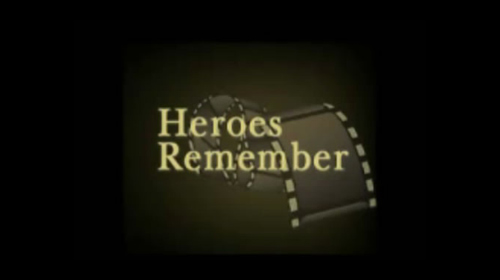Casualty clearing station
First World War Audio Archive
Casualty clearing station
Transcript
Hill 62 Memorial Belgium.
right leg, see, when I went in the casualty clearing station. It was an American doctor that made the difference for me having this leg on now and losing the leg. Because that was a BritishCourtrai Memorial Belgium.
hospital, a British casualty clearing station. And all he said, he looked at my leg and he said, “Prepare him for amputation.” I was, every 10 minutes or so there’d be somebody say from theLe Quesnel Memorial Belgium.
(inaudible), it was all (inaudible). It was the closest thing they had (inaudible). And somebody would say, “Bearers,”Gueudecourt Memorial France.
and it sounded like an undertaker, and they’d lift the guy up and take him in. My turn came and I went in. And, well, I had never been in a place like that before. So, out of simple, young adolescent curiosity, I wanted to see what it was like so IDury Memorial France.
raised myself up to a sitting position on the stretcher. It was all on the stretchers this was done, see. It was two horses on both ends, they put you on those horses and theyMonchy Memorial France.
operated on you there. There was this fellow that was there that was supposedly to do the operation. He caught me by the face and shoved me back on my back. “What’s wrong, lad. Are you nervous?” I said, “No, not a bit, but,” I said, “are you?” He said, “No,”Passchendaele Memorial Belgium.
but he says, “I’m just trying to figure out what I’m going to do with you.” He said, “I’m going to operate on you.” I said, “Are you?” I said, “Well, you look old enough to,” some words to that effect, something complimentary. He said, “You know,Masnières memorial France.
you must be a Canadian.” I said, “Yes, I am!” You almost said that in a sort of belligerent way, you know, because you want to impress them with the fact that you were tough. So, anyway,Bourion Wood Memorial France.
he said, and I hadn’t been out of the line long enough to be anything else. But anyway, he said, “You know, I’m a close cousin of yours.” I said, “Are you?” He says, “Yes.” Now this is truth, anything here I tell you now is truth, see. He said, “Yeah, I’mCourcelette Memorial France.
an American.” I said, “What the hell are you doing here? You’re not in the war yet.” He said, “No, but we’re going to be. We’re all going to be in it. I thought I’d get a jump on the restBeaumont-Hamel Memorial France.
of them and get some experience if I came over here as a surgeon. I’ve graduated in this whole thing and I may as well get some practice, so that’s exactly what I’m doing.” And heSt. Julien Memorial Belgium.
said, “I’ve learned a lot already. That’s where I’m getting my experience. So, I’m going to experiment on you. I want to do something on your leg.” I said, “Well, I hope you save it. There is a hell of a lot of things I can do with two legs that I can'tCanadian National Vimy Memorial France.
do with one.” He says, “Right, that’s simple mathematics, yes. But, I’m going to do my best to save it.” And by God, he did.Description
Mr. MacLellan describes his good fortune to be cared for by a young American doctor who had enlisted to gain experience prior to United States involvement, and whose skills saved his leg from amputation.
Campbell MacLellan
Campbell MacLellan was born in Nanaimo, British Columbia, on February 17, 1900, and grew up in Sydney Mines, Nova Scotia. Coming from a background of poverty, he enlisted when he was just under fifteen years of age at Amherst, Nova Scotia. He trained at Valcartier for a time with the 22nd Battalion and was later selected for the 6th Canadian Mounted Rifles. He sailed to England aboard, ironically enough, the German cattle boat Herschel. At Ypres, Mr. MacLellan suffered a serious leg wound. The intervention of a young American doctor saved his leg from an earlier verdict of amputation. Prior to this, he had also taken shrapnel in the lungs. His later reflections speak of the patriotic attitude of Canadian soldiers. He was discharged at the rank of sergeant in February 1919. He married Joanna Nolen on April 21, 1924, and had two sons. Mr. MacLellan died on November 5, 1986.
Meta Data
- Medium:
- Video
- Owner:
- Veterans Affairs Canada
- Duration:
- 3:42
- Person Interviewed:
- Campbell MacLellan
- War, Conflict or Mission:
- First World War
- Location/Theatre:
- Europe
- Battle/Campaign:
- Ypres
- Branch:
- Army
- Units/Ship:
- 22nd Battalion
- Occupation:
- Infantryman
Attestation
Related Videos
- Date modified:



